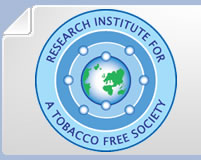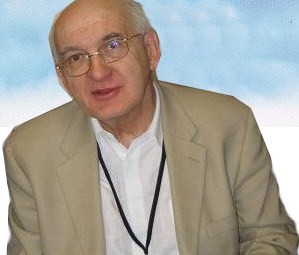
 September 24, 2009 - Professor Luke Clancy, Director General of the Irish Research Institute for a Tobacco Free Society (RIFTFS - a new institute set up by the government to look at all aspects of research on tobacco control) a physician has sharply criticised the Government over its work in disease prevention and accused it of abandoning key components of tobacco control. Prof Luke Clancy, a consultant respiratory physician: “Their credibility in prevention is low. Prevention as a whole gets a very poor show and that’s exemplified by the attitude to vaccination, which we know works, and which would have been a once-off price of €7 million, yet we can pay €54 billion and say it’s necessary to keep the banks happy.”
September 24, 2009 - Professor Luke Clancy, Director General of the Irish Research Institute for a Tobacco Free Society (RIFTFS - a new institute set up by the government to look at all aspects of research on tobacco control) a physician has sharply criticised the Government over its work in disease prevention and accused it of abandoning key components of tobacco control. Prof Luke Clancy, a consultant respiratory physician: “Their credibility in prevention is low. Prevention as a whole gets a very poor show and that’s exemplified by the attitude to vaccination, which we know works, and which would have been a once-off price of €7 million, yet we can pay €54 billion and say it’s necessary to keep the banks happy.”
Prof Clancy; recent decisions by Health Minister Mary Harney about tobacco, which is linked with about 6,000 deaths in Ireland each year, also indicate little interest in disease prevention. RIFTFS set up to study tobacco use and control but has had its state funding cut. Clancy: “The present Minister has abandoned the research institute, adding that he also considered plans to wrap the Office of Tobacco Control into a larger organisation would “emasculate” (weaken) the agency.
“So the two pillars of the implementation of the Government’s own policy of creating a tobacco-free society have been taken apart by the present Minister, and this was before Bord Snip (cost-cutting). In my opinion, she has not shown any interest in prevention.”
Tackling tobacco dependence is recognised as a cost-effective exercise, explained Prof Clancy. “International figures show that to add one year of quality life by treatment of smoking dependence costs €3,000,” he said. “To add one year by mammography is about €45,000, and to add one year by cholesterol control costs about €100,000.”
Despite strong legislation, the prevalence of smoking in Ireland still remains at around 27 percent, and more resources now need to be put into a range of measures, including training of doctors in smoking cessation, said Prof Clancy, whose institute recently secured a €3 million European Framework grant, the largest award the funding programme has given to tobacco research.
“We have to do something about the people who smoke now,” he said. “Ireland has a very high reputation for its legislation on tobacco, but the prevalence of smoking has to be brought down.
“If people who smoke now don’t stop, there will be no reduction in lung cancer for 25 years, even if not one new person starts.”
Prof Clancy said current spending on smoking cessation in Ireland falls short of what has been shown to be required internationally. “They have looked at what it costs to get prevalence down in other countries and the best evidence is that you would need to spend about $20-$25 (€14-€17) per head, and the more you spend, the more you lower the prevalence,” he said.
In Ireland, less than €1 per head per annum is spent on tobacco control, according to Prof Clancy. He said the price of tobacco products here is high, but he would like to see it raised further.
Meanwhile, banning the sale of cigarettes completely is not on the cards at present, he said. “We should aspire to be a tobacco-free society, but it isn’t a matter of just waving a wand and saying let’s ban cigarettes and there will be no smoking,” he said. “Of course I’d like to see it, but it wouldn’t work at the moment. Tobacco use is an addiction, and even with the best will in the world most people wouldn’t be able to stop, and they would break the law. “So I wouldn’t expect Ireland to move on the banning of tobacco at present. It doesn’t mean it will never be banned.”
Prof Clancy will address the conference, A Blueprint for the Future – Prevention is the Cure, at Dublin Castle this weekend.
Prof Clancy related news brief: Children - exposed to cigarette smoke in cars have greater chance of respiratory distress.. - We totally agree with Dr. Clancy - Ireland should implement this prevention measure - get it done.
Reference: Fears for tobacco control strategy, CLAIRE O'CONNELL, IrishTimes.com, 9/22/2009.
Bringing the World of Tobacco Control closer together..
Ireland - Prof Clancy not enough spent on prevention..
Subscribe to:
Post Comments (Atom)


To Provide Public Awareness
Purpose
About Us
Contact Us
2008 HIGHLIGHTS
TOPIX PAPERS - 2008 & 2009..
Archive
-
▼
2009 (1446)
-
▼
09/20 - 09/27 (26)
- Missouri - 2nd lowest cigarette tax and 4th highes...
- South Australia - SMOKING will be banned on the gr...
- Ohio - don't cut spending on anti-tobacco program...
- New Zealand - Maori committee to investigate smoki...
- Estonia will increase tax on alcohol and tobacco..
- U.S. customs officials bar imports bearing the Phi...
- Ireland - Prof Clancy not enough spent on preventi...
- Ontario - don't cut provincial tobacco taxes to ...
- Rothmans, Benson & Hedges - threatens to close fac...
- Hawaii State Tax on Other Tobacco Products Increas...
- Star Scientific - will use its low-nitrosamine tob...
- Kretek International filed suit to prevent FDA fr...
- Los Angeles County - bans smoking at county parks...
- New York City - all retailers selling tobacco will...
- NHS - anti-smoking multimedia campaign starts..
- Ryanair - smokeless cigarettes on flights - trial ...
- FDA - first steps in the role of tobacco regulati...
- C-store update: flavored tobacco, camel dissolvabl...
- Western Australia - kids no longer interested in s...
- New Jersey - Senator Buono bill would ban smoking ...
- Bulgaria - cigarette contraband, government loses...
- Finland may ban smoking in cars carrying children..
- Reynolds American, Inc. - Susan Ivey, Chairman, Pr...
- Indianapolis, Indiana - tobacco control people ar...
- Canada - cigarettes have disappeared from stores...
- Namibia - parliament considers tobacco products co...
-
▼
09/20 - 09/27 (26)
© Copyright Notice: The content of this website is for information education purposes only and any newsbrief may be used only as "fair use" for information/education purposes with permission of the authors and providing that original references and associated reference links are included in HTML format.
0 comments:
Post a Comment